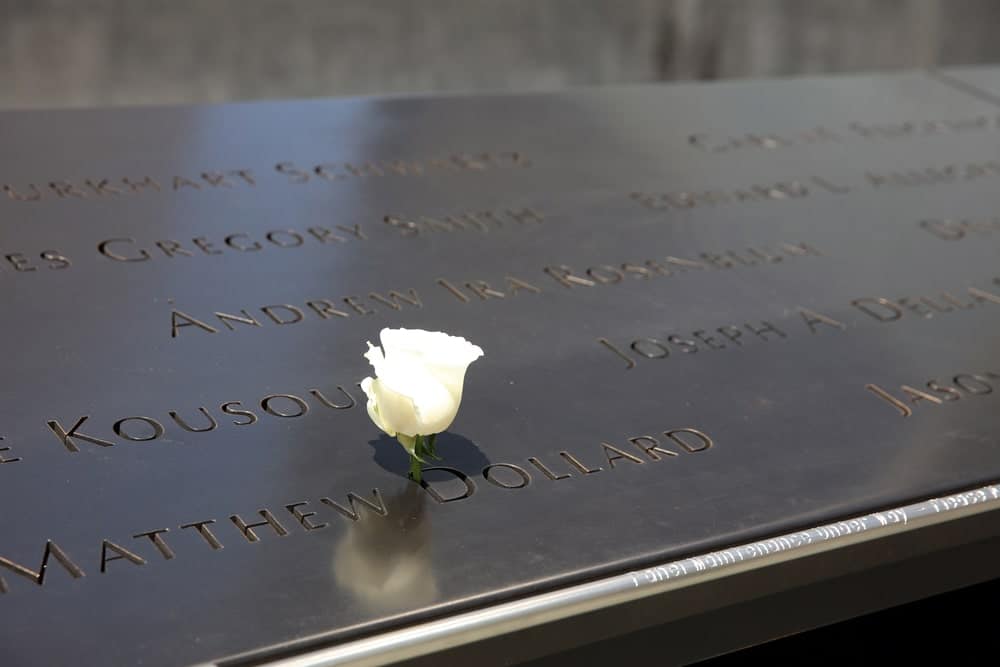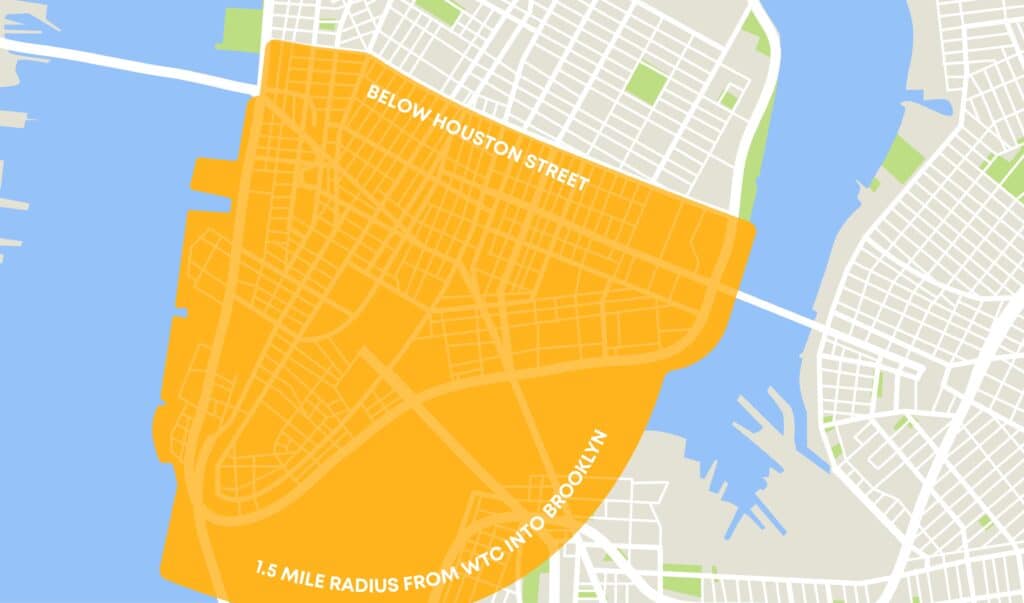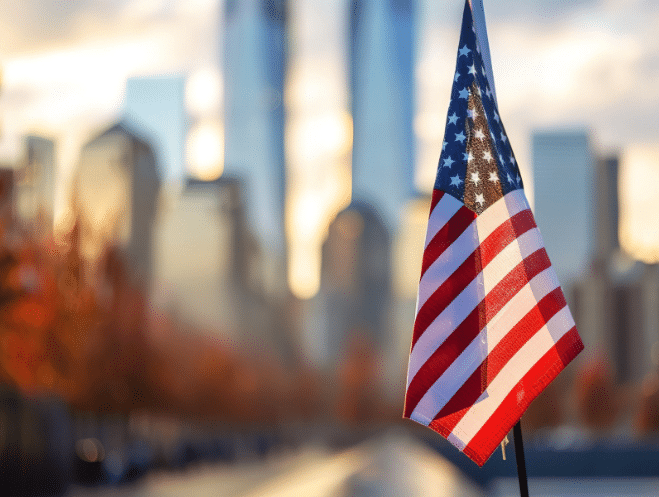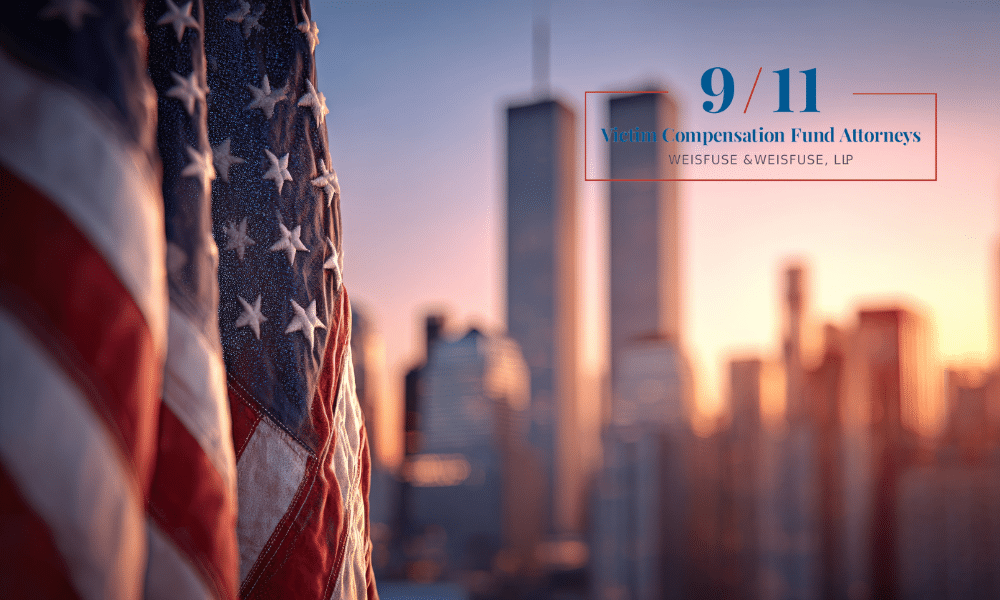
The September 11th attacks on the World Trade Center were nearly 20 years ago, but responders including First responders, volunteers, clean-up workers, and survivors who lived, worked & studied in Lower Manhattan, continue to suffer serious illnesses as a result of toxic exposure from the 9/11 attacks.
The first NYPD officer whose death was linked directly to toxic dust exposure during WTC rescue operations was James Zadroga, who succumbed to pulmonary fibrosis in 2006.
What is the James Zadroga 9/11 Health and Compensation Act?
In 2010, the first of two bills were passed, creating the James Zadroga 9/11 Health and Compensation Act to provide compensation and medical treatment to people suffering from 9/11-related health problems. Initially funded for only five years, a second bill was passed in 2015, extending coverage under the Act. In 2019, the bill was renewed again.
World Trade Center Health Program (WTCHP)
The Zadroga Act includes two separate programs—the first being the World Trade Center Health Program (WTCHP), which provides health care to 9/11 victims, including responders and survivors who lived, worked, or studied in the surrounding area on or in the months following September 11th, 2001.
September 11th Victim Compensation Fund (VCF)
The second program included in the Zadroga Act is the September 11th Victim Compensation Fund (VCF), which is operated by the U.S. Department of Justice and provides financial compensation for 9/11-related illnesses.
The VCF compensates for economic and non-economic losses as well as survivor benefits for deceased claims. Any individual suffering from a 9/11-related illness may be successful in obtaining financial compensation through the VCF.
To make a claim with the VCF for compensation, individuals should first enroll with the WTCHP. Then, there is a deadline to register with the VCF. All registrations with the VCF by July 29th, 2021 are considered timely. However, those who do not register by July 29th, 2021 may still do so, so long as it is within two years from the date that they learned about the VCF program. For example, that two-year clock begins to run on the date of WTCHP certification. Or, if the individual was never certified with the WTCHP, the deadline is 2 years after they became aware of the programs, ie. any federal or state entity informed them about the programs.
Once successfully registered with the VCF, then individuals can make a claim for compensation at any time.
The experienced legal team at Weisfuse & Weisfuse, LLC has helped countless 9/11 survivors and responders get the care and compensation they are entitled to. Contact us today at 212-983-3000 for a free and confidential consultation.
The Requirements for Filing a Zadroga Act (VCF) Claim
Anyone who was present in the New York City Exposure Zone from September 11th, 2001 through May 30, 2002 may be eligible to receive compensation through the Zadroga Act (VCF) for injuries or illnesses related to this exposure. The Exposure Zone is Lower Manhattan, south of Canal Street and southwest of East Broadway and Clinton Street. This includes:
- Lower East Side
- Tribeca
- SoHo
- Greenwich Village
- China Town
- Bowling Green
- Battery Park
This is not an all-encompassing list. Here is a detailed map of the New York City Exposure Zone. Those who were present or who lost loved ones at the Shanksville, PA crash site or the Pentagon may also file a claim.
Timeframe Requirements to Filing a Zadroga Act Claim
The VCF requires proof of presence in the New York City Exposure Zone to be eligible for compensation. With certain exceptions for firefighters and victims who received compensation through the initial September 11th Victim Compensation Fund between 2001 and 2004, victims must submit proof of their physical presence in the exposure zone either on 9/11 or in the months following.
Acceptable forms of proof include but are not limited to:
- Pay stubs and other employment records
- Mortgage bill or lease
- Utility bills
- School or daycare records
- Medical records for injuries that occurred at any of the 9/11 sites
- Witness statements
Medical Condition Requirements
The WTCHP covers certain medical conditions that are known to be linked to 9/11 exposure. While victims don’t need to prove a direct link between their health problem and 9/11, the WTCHP will evaluate causation based on the duration of presence in the Exposure Zone, the nature of the individual’s work or activities therein, and the date of diagnosis or first symptoms.
Some of the program’s covered conditions include:
- Cancer, including leukemia, lymphoma, breast, colon, kidney, skin, prostate, reproductive cancers, head and neck cancer, thyroid cancer, pancreatic cancer, and many others;
- Mesothelioma;
- Aerodigestive disorders, such as asthma, lung disease, GERD, and sleep apnea;
- Traumatic brain injuries and other acute traumas; and
- Musculoskeletal disorders, including back pain and carpal tunnel syndrome.
The above list is not exhaustive. Here is the complete list of WTCHP-certified health conditions and injuries. Contact Weisfuse & Weisfuse, LLC today for more information.
What 9/11 Illnesses Can I Be Compensated For?
Any individual suffering from a 9/11-related illness who is successful in a VCF claim may be eligible to obtain compensation for:
- Out-of-Pocket medical expenses
- Lost income—past and current
- Pain and suffering
- Household services
- Survivor benefits
Contact the Zadroga Act Lawyers at Weisfuse & Weisfuse, LLC Today
Attempting to file a legal claim without the help of an experienced Zadroga Act lawyer can lead to unnecessary delays, reduced benefits, and an unsuccessful claim. The skilled and experienced legal team at Weisfuse & Weisfuse, LLC has helped 9/11 victims obtain the maximum compensation they are entitled to by providing thorough representation and submitting medically-supported optional impact statements on their behalf. Contact us today at 212-983-3000 for a free and confidential consultation.







